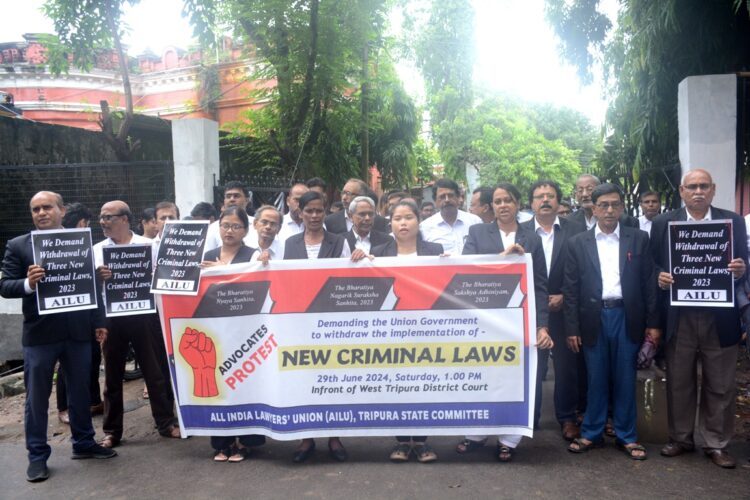Agartala: June 29: The Indian government has recently enacted three new criminal laws aimed at modernizing the country’s legal framework and enhancing the criminal justice system. These laws will replace the colonial-era statutes and address various aspects of criminal proceedings. Here are the key points:
The BNS replaces the Indian Penal Code (IPC) and streamlines criminal offenses. With 358 sections, it is a concise alternative to the IPC’s 511 sections. Replacing the Code of Criminal Procedure (CrPC), the BNSS introduces electronic filing of First Information Reports (FIRs) and facilitates electronic trials. This digital approach aims to expedite legal processes. The BSA replaces the Indian Evidence Act (IEA) and allows for remote presentation of electronic evidence. This change ensures efficiency and accessibility in court proceedings.
Additional features of the new laws include community service as a punishment for specific offenses, the death penalty for rape of girls under 12 years old, and authorization requirements for police officers in certain cases. Witness protection provisions have also been enhanced.
Over 2,347 personnel from various departments have undergone training to implement these laws effectively. The government is committed to providing the necessary infrastructure and technology for their successful execution.
These legislative reforms mark a significant step toward modernizing India’s criminal justice system and ensuring the safety of victims and citizens.


















